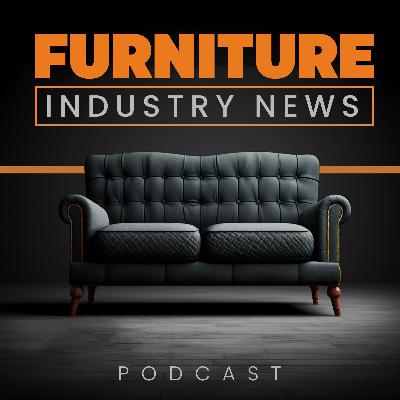Trump's 50-day furniture tariff investigation sends import stocks tumbling while domestic manufacturers pivot strategies.
Description
The recent announcement by President Trump regarding a significant tariff investigation into imported furniture has emerged as a pivotal development within the industry, with potential ramifications that could reshape the landscape of domestic manufacturing and retail. This investigation, projected to conclude within a mere 50 days, aims to bolster manufacturing jobs in states such as North Carolina, South Carolina, and Michigan, thereby signaling a renewed commitment to reviving domestic production in the face of persistent economic challenges. As we delve into the complexities of this situation, we will examine the ensuing market reactions, highlighting the immediate impacts on both import-heavy firms and those with substantial domestic operations. Moreover, we will explore the strategies employed by manufacturers to navigate the dual pressures of rising tariffs and fluctuating consumer demand, underscoring a pronounced shift towards increased domestic sourcing and operational adaptability. Lastly, we will consider the broader economic context, including recent trends in the housing market that may offer a glimmer of hope for the furniture sector, as we aim to elucidate the intricate dynamics at play in this evolving industry narrative.
The podcast on August 25, 2025, delineates a comprehensive examination of contemporary dynamics within the furniture industry, particularly focusing on the implications of recent tariff investigations initiated by President Trump. The announcement of a tariff investigation into imported furniture is poised to conclude within a notably brief timeframe of fifty days, raising questions about its potential impact on domestic manufacturing and employment in states traditionally known for their furniture production, such as North Carolina and Michigan. The speaker articulates a dual narrative; on one hand, the impending tariffs are anticipated to bolster domestic manufacturers by curtailing foreign competition, while on the other, they pose significant risks to companies reliant on imported materials. This juxtaposition illustrates the complex nature of economic policies and their repercussions on various stakeholders within the industry.
In addition to the tariff discourse, the podcast delves into the current state of the housing market, which, despite exhibiting some signs of improvement, remains encumbered by inflationary pressures and consumer hesitancy. Specifically, the discussion highlights a modest increase in existing home sales, suggesting a potential revival of demand for furniture as new homeowners seek to furnish their living spaces. However, the speaker cautions that high interest rates could deter potential buyers, thereby complicating the outlook for furniture sales. The synthesis of these themes underscores the necessity for manufacturers and retailers to remain adaptable and responsive to the evolving landscape of consumer demand and economic conditions.
The dialogue culminates in an exploration of strategic adaptations within the industry as companies like Parker Brands and Legends Furniture pivot towards increasing domestic sourcing and streamlining operations in response to these external pressures. The emphasis on maintaining agility in supply chains, alongside a commitment to enhancing product offerings that cater to the current market's demands, encapsulates the overarching message of resilience and innovation amidst adversity. As the podcast concludes, it encourages stakeholders to reassess their strategies in light of these developments, emphasizing the critical nature of informed decision-making in navigating the complexities of the modern furniture market.
Takeaways:
- The recent announcement by President Trump regarding a tariff investigation on imported furniture is poised to significantly impact the American furniture industry, with potential implications for job creation in states such as North Carolina and Michigan.
- Domestic manufacturers are currently facing a myriad of challenges, including rising component costs and fluctuating consumer demand, necessitating innovative strategies to adapt and survive in this evolving marketplace.
- Despite the evident turmoil within the industry, some domestic companies are capitalizing on their strengths by increasing local sourcing and optimizing production processes to mitigate the effects of tariffs and inflation.
- The housing market is exhibiting signs of recovery, with an uptick in existing home sales, which may subsequently stimulate demand for furniture and related home goods in the near future.





